Sierra Dages, ’27, and Gabby Hubchen, ’27, are applying their physics knowledge to help solve environmental problems. Here they are collecting thermal imagery outside of the Center for Natural Sciences with a drone to better automate plant identification and map temperatures. Their research field work started in their first year and has taken them on Cayuga Lake and to dairy farms, landfills, and Ithaca College’s Natural Lands.
Explore the Universe Around You
Master physics in a collaborative, state-of-the-art, welcoming environment in the Department of Physics and Astronomy at Ithaca College. We will provide you will the tools, skills, and personalized attention you need to succeed in your future scientific career.
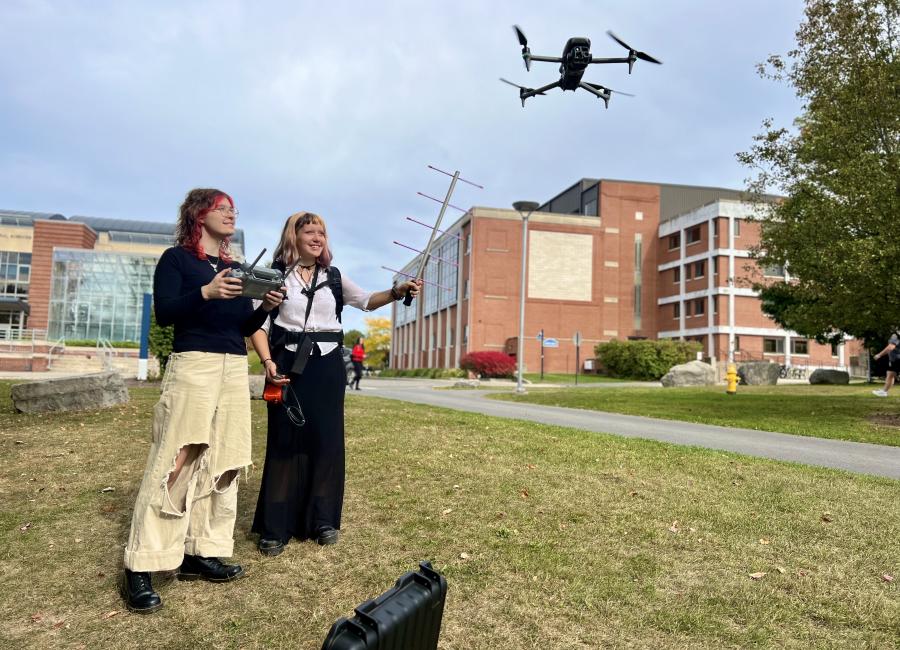
Launch Your Own Research
Faculty will work with you to forward your career trajectory.
What can you do as a graduate of our physics or physics-engineering progams?
Read more about the exciting careers of our graduates in the Alumni Highlights!
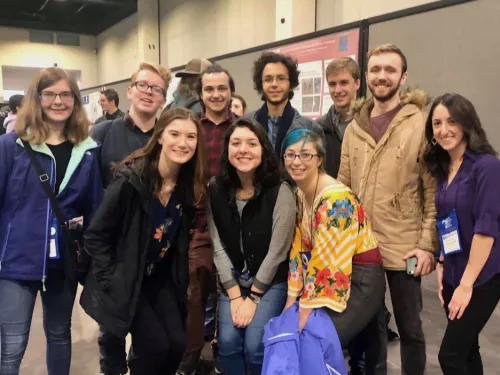
Hear from Our Students
Our students answer prospective students' frequently asked questions.
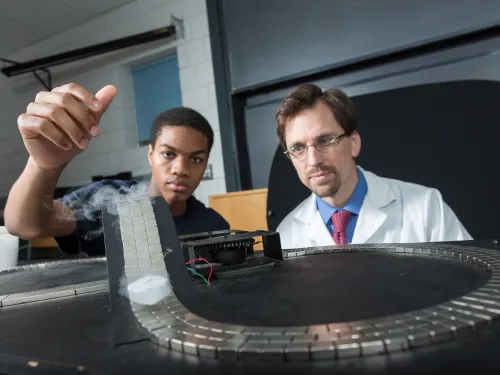
Explore Our Physics Programs
Follow your career path by learning about our wide variety of customizable majors programs.
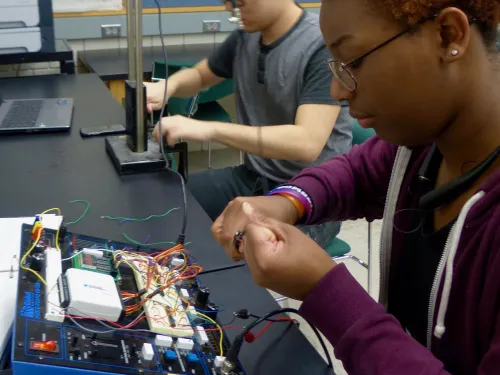
Join in our Anti-Racism Plan
Learn about how we are supporting an inclusive environment for all students and faculty.
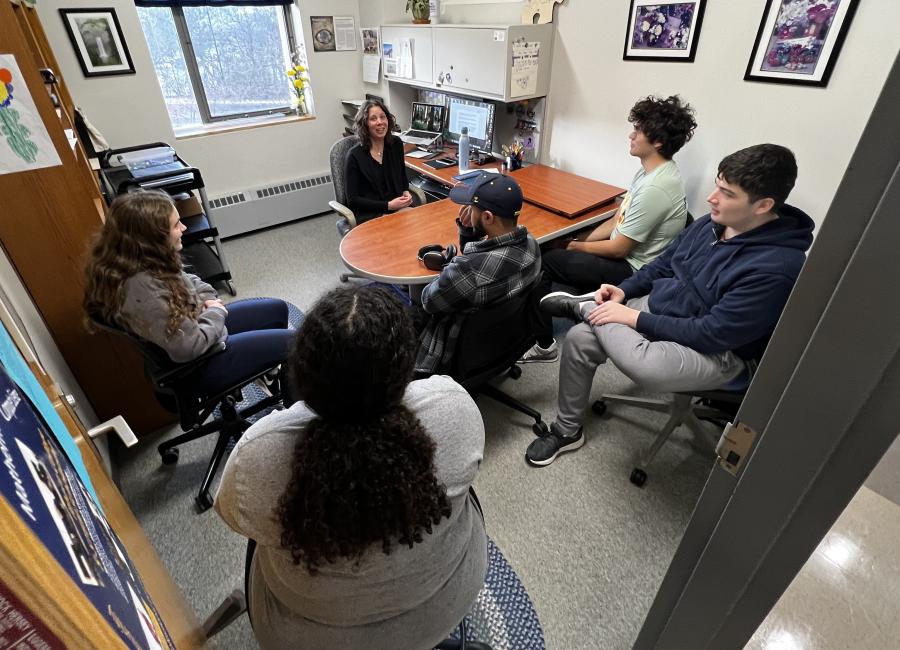
Connect with a Physicist
Interested in chatting with one of our current students or faculty members?
IC Physics & Astronomy in the News
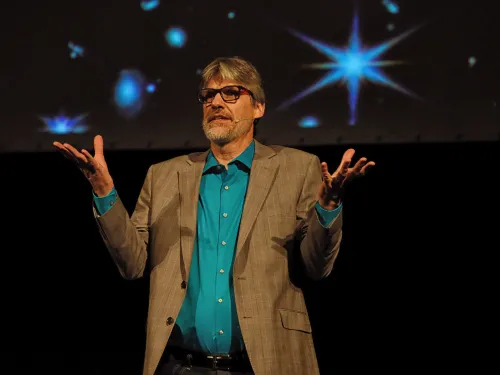
The Effects of Gravity
How a physicist, a poet, and a guitarist brought the universe to life on stage

Dear Grad,
Graduating IC students read letters from their professors (get your tissues out).
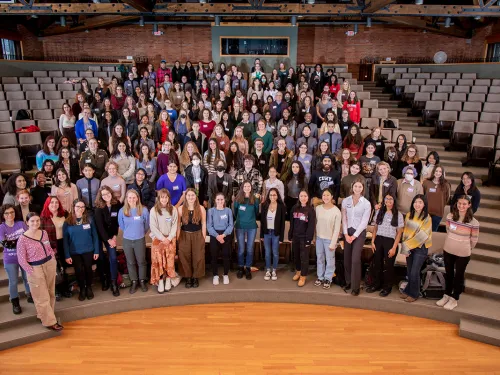
Accelerating the Power of Women in Physics
2023 Conference for Undergraduate Women in Physics co-hosted by Ithaca College and Cornell University.
Contact Us
Matthew C. Sullivan, Chair
Casey Silidjian, Administrative Assistant
Jennifer Mellott, Equipment/Laboratory Specialist
Department Office: 258A Center for Natural Sciences